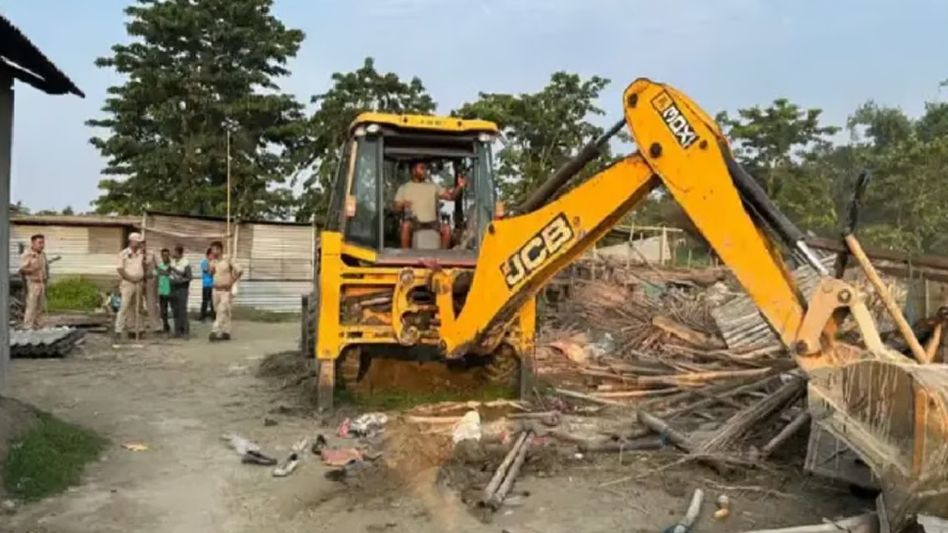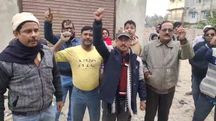Inquiry commission justifies Assam's 2021 Gorukhuti eviction drive, criticizes short notice and police conduct
A government-appointed inquiry commission has concluded that the eviction drive in Gorukhuti, Assam, which resulted in two deaths, including a 12-year-old boy, was justified, but conducted on short notice.

A government-appointed inquiry commission has concluded that the eviction drive in Gorukhuti, Assam, which resulted in two deaths, including a 12-year-old boy, was justified, but conducted on short notice. The report, submitted by retired Gauhati High Court judge BD Agarwal, made 16 recommendations and criticized the police for not exercising adequate restraint during the operation.
Three years after the controversial eviction drive in Assam's Darrang district turned violent, a one-man inquiry commission has delivered its findings. The drive, which took place in September 2021, was aimed at clearing encroached land in Dholpur for the Gorukhuti agriculture project. The incident, however, led to clashes between the police and protestors, resulting in the deaths of two civilians, including a 12-year-old boy, and several injuries, including to police personnel.
The commission, headed by retired Gauhati High Court judge BD Agarwal, was formed just days after the eviction, following a government notification on October 1, 2021. Its 319-page report was officially submitted to Assam Chief Minister Himanta Biswa Sarma. The report, which included 16 key recommendations, has not yet been made public in full. Still, the government has disclosed that the findings justify the eviction on legal grounds but criticize the hasty execution and lack of police restraint during the operation.
The drive on September 23, 2021, was part of a larger effort by the Assam government to reclaim government land that had been encroached upon by settlers, primarily Bengali-speaking Muslims. The multi-crore Gorukhuti agriculture project was initiated soon after the land was cleared, involving close to 10,000 bighas of land. Nearly 1,300 families were displaced in the eviction, sparking public outrage and leading to the violent clashes that left both police and civilians injured.
The commission’s report firmly stated that the government had every legal right to conduct the evictions. A government source quoted in The Indian Express stated, “It lays out that no one has the right to occupy public land, be it forest land, grazing land or tribal land since it is public property. Everyone has an equal right to it, and occupying it denies others of their right to it. The report also points to the criminality of land grabbing.” This statement reflects the commission’s firm stance on the illegal occupation of public land, an issue that has been central to several land disputes across Assam.
The inquiry delved deeply into the events that unfolded during the eviction drive. The report’s findings reveal that while the eviction itself was legally sound, it was carried out on short notice, leaving little time for adequate planning or communication with the affected families. This lack of preparation exacerbated tensions on the ground and likely contributed to the outbreak of violence. The commission also criticized the police for not exercising sufficient restraint in handling the protesters, which may have escalated the situation further. The incident, particularly the death of the 12-year-old boy, drew widespread condemnation and placed the state government under intense scrutiny.
The commission’s findings are based on extensive evidence, including 55 memorandums and testimony from 44 witnesses who were cross-examined during the inquiry. Despite the extensive documentation and investigation, some aspects of the incident remain contentious, particularly regarding the level of force used by the police. These findings, while not exonerating the police entirely, offer a complex picture of the challenges faced during the eviction drive.
The eviction drive at Gorukhuti is part of a broader pattern of land reclamation efforts by the Assam government. According to official data, over 10,620 families have been evicted from government land in the state since 2016, with 5,854 evicted since May 2022 alone. The government has framed these efforts as necessary to clear illegal settlements and ensure that public land is used for the benefit of all citizens, rather than being monopolized by a few. However, these drives have frequently led to tensions, particularly in regions with large populations of settlers, many of whom are from marginalized communities.
In Gorukhuti, most of the displaced families were Bengali-speaking Muslims, a fact that has added to the political and communal sensitivities surrounding the evictions. Critics have accused the government of disproportionately targeting certain communities under the guise of land reclamation. These accusations have been strenuously denied by state officials, who insist that the evictions are driven solely by legal considerations and the need to protect public land from encroachment.
The Gorukhuti agriculture project, which commenced shortly after the eviction, is now underway. The multi-crore initiative is part of the government’s broader push to boost agricultural productivity and development in the region. The project aims to convert the reclaimed land into a hub for agriculture and allied activities, creating employment and economic opportunities for local residents. However, the displacement of nearly 1,300 families has cast a shadow over these ambitions, with many questioning whether the social costs of the project are too high.
While the commission’s report justifies the evictions, it also provides 16 crucial recommendations aimed at preventing similar incidents in the future. Among these recommendations are calls for better communication with affected communities, a more measured approach to policing during evictions, and the provision of alternative housing or compensation for displaced families. These suggestions, if implemented, could help mitigate the risk of future evictions turning violent.
Copyright©2026 Living Media India Limited. For reprint rights: Syndications Today









